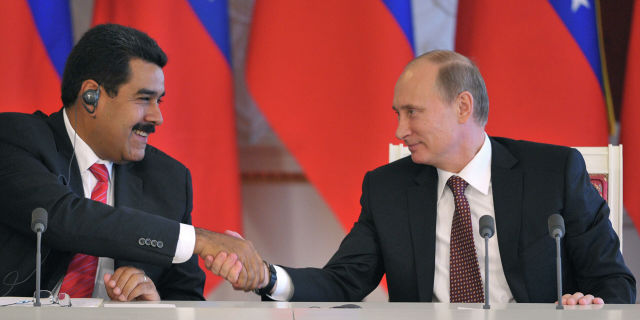Huanqiu shibao (China): Does Russia seek to enter the "backyard" of the United States?
Having banned the import of Russian oil, the United States remembered Venezuela and wanted to establish relations with it, writes Huanqiu Shibao. At the same time, Russia also wants to strengthen its geopolitical position in Latin America. She has at least three reasons for this.
Recently, top U.S. officials visited Venezuela to discuss cooperation in the oil industry, and it seems they are very interested in improving relations with it. While tensions between Russia and Ukraine persist, it is worth carefully analyzing America's actions in the "backyard" of Latin America.
Among Latin American countries, Cuba, Venezuela and Nicaragua have long been hostile to the United States and are also part of the "pro-Russian" faction. In recent years, Russia has really actively strengthened its strategic cooperation with them. On January 24, the leaders of Russia and Cuba had a telephone conversation, and Russian Deputy Foreign Minister Sergei Ryabkov said that "Russia does not confirm or exclude the possibility of deploying armed forces in Cuba and Venezuela." On January 26, Russian Foreign Minister Sergei Lavrov confirmed at a speech in the State Duma that "an agreement has been reached with the leaders of three countries - Cuba, Venezuela and Nicaragua - on the development of partnership, including military cooperation." On February 24, Deputy Prime Minister of the Russian Federation Yuri Borisov visited these countries in turn. At the same time, the Russian State Duma approved the revision of some debts between Russia and Cuba and extended the payment period to the Cuban side until 2027.
Russia actively wants to consolidate its geopolitical presence in Latin America for three reasons: firstly, the contradiction between "control and resistance to control" between the United States and Latin American countries is increasingly growing. Latin American countries are striving to get rid of American political and economic control and are looking for their own independent path of development. Secondly, the United States is currently focused on rivalry with China and Russia, and its strategic focus has gradually shifted to the east. In a way, this can be described by the saying: "taking on one thing, you will lose sight of the other," and therefore the attention of the United States to the countries of the Western Hemisphere and Latin America has decreased. Thirdly, given the close historical and practical ties between the United States and Latin America and the unique geographical significance of the latter, Moscow believes that increasing influence in the region can to some extent help to restrain the US presence in Eastern Europe.
US National Security adviser Jake Sullivan called Russia's move an "empty threat," but independent politician Bernie Sanders criticized the government for "double standards." Since the introduction of the Monroe Doctrine, Washington has viewed outside interference in American affairs as a "threat to the peace and security of the United States" on the grounds that "America is the inhabitants of the American continent," and, justifying this theory, destroyed and overthrew regimes in at least a dozen Latin American and Caribbean countries. If the United States cannot accept threats within its security perimeter, why should Russia silently accept NATO's expansion to the east? Sanders' words can be described as a sarcastic mockery of American hegemony.
Zhang Jieyu (章婕妤) is a researcher at the Institute of Latin America and the Caribbean of the Chinese Institute of International Studies

